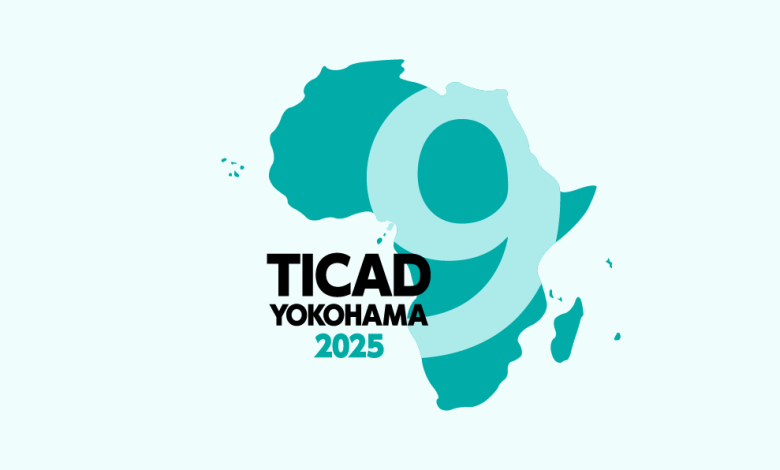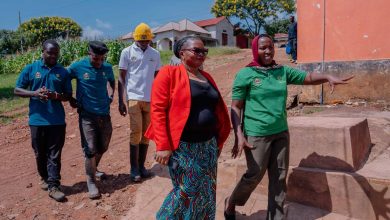TICAD9 fosters future via youth, innovation, partnership

YOKOHAMA: I have been reflecting on the potential outcomes of the current 9th Tokyo International Conference on African Development (TICAD9) conference, where President Samia Suluhu Hassan has sent Ambassador Mahmoud Thabit Kombo to represent Tanzania.
The meeting focuses on fostering innovation, supporting youth entrepreneurship and enhancing collaboration between Japan and African nations for mutual benefit.
Africa, a continent of diversity, resilience and promise, is again at the centre of global attention as TICAD9 convenes in Yokohama.
The timing is critical. With challenges such as economic inequality, climate change and geopolitical fragmentation intensifying globally, TICAD9 provides a key platform to rethink development cooperation and establish new models grounded in trust, innovation and collaboration.
Africa’s youth hold the key to the continent’s future. By 2050, one in four people on earth will be African, creating a oncein-a-generation opportunity: A demographic dividend powered by a young, dynamic workforce in an era of rapidly advancing technology, including artificial intelligence.
Experts say investment in healthcare, education and employment must continue to unlock this potential. Without it, these demographic trends could exacerbate poverty and instability.
Since Japan’s Official Development Assistance began in 1954, the Japan International Cooperation Agency (JICA) has worked in over 190 countries, promoting development through infrastructure, human resource development and technical cooperation.
As a recipient of JICA sponsorship in 2014 to explore ways of improving Project Value Chain Financing for Development Financial Institutions in SADC countries, I can attest that JICA’s support has consistently promoted locally driven development—benefiting me, my nation and future participants.
The recent agreement between Tanzania and Japan will enable Tanzanian youth to gain skills and capacity, particularly in engineering and construction, by accessing Japanese technology and expertise.
This will enable them to join the construction industry, secure employment with Japanese companies and engage in the private sector as part of the execution of Tanzania’s National Development Vision 2050, particularly in the infrastructure sector, which is central to the country’s economic growth.
This approach focuses on empowering local communities to develop their own solutions rather than imposing external frameworks.
I am currently applying this concept in my role at TIB Development Bank, a policy-focused development finance institution responsible for funding strategic impact projects proposed by the public or private sector. Drawing from my experience, JICA’s initiatives in Africa reflect this locally driven development approach.
The Coalition for African Rice Development (CARD), launched at TICAD IV in 2008, doubled rice production across the continent within a decade, yielding significant results in Tanzania’s Kilimanjaro region.
Now expanded to 32 countries, CARD aims to double production again to 56 million tonnes by 2030, moving Africa toward food self-sufficiency.
Initiatives such as SHEP (Smallholder Horticulture Empowerment and Promotion) and KAIZEN, a productivity methodology adapted from Japanese business practices, have helped farmers and workers improve livelihoods and efficiency with limited resources.
Projects like the Kilimanjaro rice initiative are now led by African trainers, reinforcing sustainable development across the continent.
ALSO READ: Tanzania, Japan sign landmark construction deal at TICAD9 Summit
During my time in Japan in 2014 for the training as I mentioned earlier, I realised that at the core of all JICA’s efforts is the idea of human security—a guiding principle reaffirmed in Japan’s revised Development Cooperation Charter in 2023.
Human security involves ensuring that individuals are free from fear and want and can live with dignity. In a world facing multiple crises, from geopolitical tensions to pandemics and climate shocks, this principle is more pertinent than ever.
Upon closer examination, Africa’s youth—including those in Tanzania—are not just beneficiaries but innovators. Across the continent, young entrepreneurs are leveraging digital technologies to address local challenges and create new ventures.
Recognising this, JICA launched Project NINJA (Next Innovation with Japan) in 2020 to connect African startups with Japanese investors.
Complementary initiatives, such as the two-step loans programme, have further supported innovation and growth, with tangible benefits for Tanzanians through the Tanzania Agricultural Development Bank.
Individuals studying JICA support will likely agree and if they reflect on the fact that in 2025, JICA formalised its first Grant Aid agreement with Nigeria to strengthen local startups, it marks a significant moment in the partnership between Africa and Japan in the field of innovation.
During TICAD9, JICA will reintroduce the IDEA (Impact Investing for Development of Emerging Africa) Initiative, aimed at harnessing private capital to promote socio-economic development and address climate change.
Additionally, the revised JICA Act, enacted in April 2025, empowers JICA to assume financial risks and stimulate private investment—an unprecedented development in Japan’s history of international cooperation that is both timely and, in my view, likely to have a significant impact on African nations. Building on ABE, JICA plans to introduce TOMONI Africa at TICAD9.
‘Tomoni’ means ‘together’ and ‘friends’ in Japanese, reflecting the importance of shared knowledge and mutual engagement.
TOMONI Africa intends to strengthen direct interactions between African and Japanese youth, continuously fostering friendships and collaborative efforts.
In my view, this spirit is already evident, as seen in the Japan-Africa Youth Camp organised by JICA in May 2025, where around 300 Japanese students interacted with 20 African counterparts to discuss cultural exchange, development issues and future opportunities.
Such engagements break down barriers and promote lasting understanding and cooperation. Since 1965, over 16,000 Japanese Overseas Cooperation Volunteers have made significant contributions in Africa, working across various sectors such as education and agriculture.
Many of these individuals return to Japan with a renewed sense of purpose, often starting social enterprises and revitalising local communities.
As a result, the multilateral structure of TICAD, which brings together governments, civil society and international organisations, remains a crucial part of its ongoing success.
The spirit of partnership fostered by JICA continues to grow. A notable example is the collaboration with the African Continental Free Trade Area (AfCFTA) Secretariat in 2022, aimed at building a unified trade zone across the continent.
The initiative underscored the importance of corridor development to connect cities and stimulate economic activity, while promoting one-stop border posts to streamline cross-border trade.
Although Africa still faces challenges such as poverty, conflict and governance hurdles, JICA’s partnership has the potential to transform these into historical footnotes.
Today, the continent’s assets—its youth, innovation and resilience—stand not as appeals for charity but as compelling grounds for a shared and strategic investment in the future.
I am of the view that the outcomes of TICAD9 will carry a clear and distinct message: Africa and Japan have the ability to jointly craft solutions to global challenges.
These solutions will be anchored in the principles of human security, driven by the energy of youth and grounded in mutual respect—thereby setting a paradigm for inclusive and sustainable development.
As a citizen of Tanzania, I believe the future is not simply inherited; it is something we must build together. JICA’s presence in the country spans more than sixty years, beginning in 1963.
Its work has touched diverse sectors, including infrastructure, agriculture, industry and SMEs, health, education and governance.
Across all these initiatives, JICA has consistently upheld a people-centred approach, one that prioritises skill development, fosters self-reliance and advances sustainability.
A significant proportion of SMEs—including many that showcased at the 49th Dar es Salaam International Trade Fair (Sabasaba)—after reviewing their practices and identifying operational challenges, recognised that they had benefited from KAIZEN training to strengthen efficiency.
Beyond SMEs, KAIZEN has also been adopted in hospitals and the public sector to raise the quality of service delivery.
As development challenges increasingly transcend borders and grow more complex, I hope that beneficiaries of JICA initiatives will continue to serve as a bridge between Tanzania and Japan, driving the co-creation of innovative solutions in line with the theme of TICAD 9.
This makes Tanzania’s participation not only timely but also strategically advantageous for its diplomatic relations with Japan.





